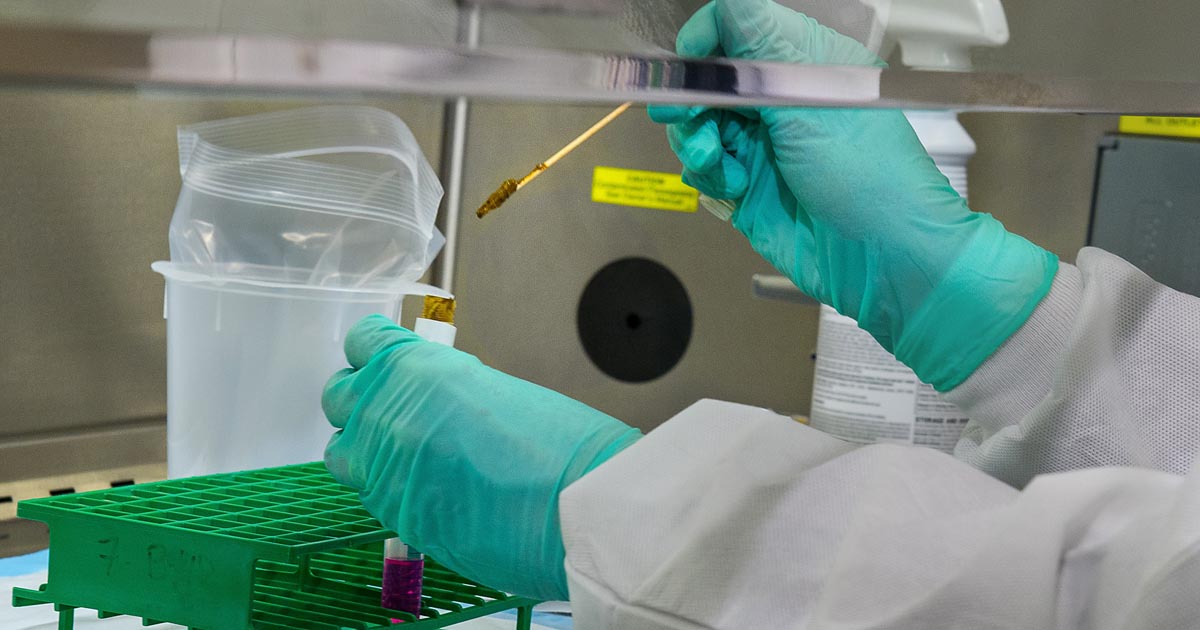In times when it is becoming increasingly difficult to discover new pharmaceuticals, the use of artificial intelligence (AI) also gives hope in this area. By analysing large amounts of data and developing predictive models, AI can significantly speed up the research and development process of new drugs. We shed light on why this could help cancer patients and what other opportunities, but also risks, arise.

Anyone who discovers a mouldy packed sandwich in their child's school bag after six weeks of summer holidays is likely to be at least briefly annoyed by this accident. But one could also look at it differently: In science, similar "accidents" have already led to astonishing discoveries. The Scottish physician and bacteriologist Alexander Fleming for example found penicillin by accident. When he left one of his bacteria samples in the laboratory during his summer holidays in September 1928, moulds grew on some of them. These had formed substances that killed the bacteria - in this case staphylococci. The first antibiotic was discovered.
Such accidental discoveries of medicines hardly ever happen today. It is becoming increasingly difficult and expensive to find new active pharmaceutical ingredients. According to one study, it costs around 2.6 billion US dollars to bring a new active ingredient to market. And before new active ingredients can be used in medicines, they have to undergo extensive and sufficient clinical testing.
But the need for new drugs is there because the growing world population increases the risk of new pathogens spreading. The Corona pandemic clearly demonstrated this. But not only viruses, but also certain bacteria and germs pose an increasing danger: The number of infections and deaths due to antibiotic resistance has risen significantly, as the "European Centre for Disease Prevention and Control" (ECDC) found on behalf of the European Union. According to estimates, an average of 35,000 people die each year in the European Economic Area alone as a result of infections with antibiotic-resistant bacteria.
For example, in order to discover specific drugs against resistant bacteria, it is important to find new synthetic substances. To develop new pharmaceutical drug candidates, it is estimated that one has to test a decillion molecules. A decillion is a one with 60 zeros, which is a very large data set. AI and machine learning can help to examine this and thus the molecules more quickly. The pharmaceutical company Merck names two advantages of this method, among others:
Artificial intelligence could be used in many areas of the development of new medicines in the future. We have selected two interesting examples from current research.
If artificial intelligence can find virtually any chemical compound imaginable, it stands to reason that this technology could also be used to create potentially dangerous substances. A group of researchers showed in a study that it took an AI developing drugs less than six hours to invent 40,000 potentially lethal molecules. They put the AI, which is normally used to find helpful drugs, into a kind of "bad guy" mode to show how easily it could be misused to make biochemical weapons. The AI found tens of thousands of new substances, some of which are similar to VX, the most powerful nerve agent ever developed.
Given the difficulty of finding new drug substances, the use of AI is certainly an opportunity to find, for example, vaccines against cancer or new antibiotic agents against hospital bacteria. It gives hope that there is currently so much research in the field. At the same time, however, scientists warn against early hype, as some possible substances have so far only been tested in animal experiments or have only gone through phase 1 of a clinical trial. In order to be approved on the German market, drugs must have successfully passed three clinical test phases. In addition, it is important to ensure that such an AI does not fall into the wrong hands, so that an opportunity for humanity does not become a danger.
AI in medicine – using the voice to diagnose disease
Healthy teeth thanks to AI
"In the health sector, AI is already a game changer"
Most Popular